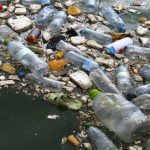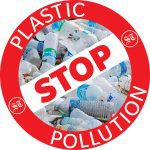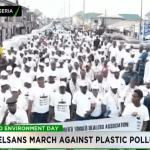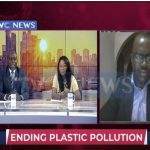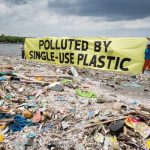Beginning on Monday, November 11, 2023, delegates from 175 nations will gather in Kenya to negotiate the inclusion of specific measures in a legally binding international treaty aimed at ending plastic waste, marking the first such negotiations.
By the end of 2024, the nations plan to have finalized the first worldwide treaty to address the problem of plastics.
The stakes are high because petrochemical plastics are pervasive; trash of all sizes is already present on mountain tops and at the bottom of oceans. Talks on the fight against plastic pollution have resumed in Kenya.
Micro plastics have been detected in blood and breast milk.
The United Nations Environment Programme (UNEP) headquarters in Nairobi, from November 13–19, is the first chance for the negotiators to discuss a draft treaty that was published in September and details the various ways in which the plastic problem can be resolved. The negotiators have already met twice.
Everyone agrees that a treaty is necessary.
However, opinions differ regarding the policies upheld by various nations, environmentalists, and the plastics industry..
Several countries and environmental NGOs are arguing in favour of a ban on single-use plastic products and stricter rules, among other so-called “high-ambition” measures.
For their part, manufacturers and the main producer countries are campaigning for recycling and better waste management.
Plastic pollution is set to get worse: annual production has more than doubled in 20 years to 460 million tonnes.
It could triple by 2060 if nothing is done. Yet only 9% is recycled.
Plastic also contributes to global warming, accounting for 3.4% of global emissions in 2019, a figure that, according to the OECD, could more than double by 2060.
The EPS Industry Alliance, a North American association that defends companies that make expanded polystyrene frequently used in the US for takeaway cups, says there has been insufficient “independent scientific review” of the treaty, warning of the “unintended consequences” of some of the proposals.
The Nairobi meeting is the third of five sessions in a fast-track process aimed at concluding the negotiations next year.
After the Kenyan capital, negotiations are due to continue in April 2024 in Canada, concluding in South Korea at the end of 2024.
Beginning on Monday, November 11, 2023, delegates from 175 nations will gather in Kenya to negotiate the inclusion of specific measures in a legally binding international treaty aimed at ending plastic waste, marking the first such negotiations.
By the end of 2024, the nations plan to have finalized the first worldwide treaty to address the problem of plastics.
The stakes are high because petrochemical plastics are pervasive; trash of all sizes is already present on mountain tops and at the bottom of oceans. Talks on the fight against plastic pollution have resumed in Kenya.
Micro plastics have been detected in blood and breast milk.
The United Nations Environment Programme (UNEP) headquarters in Nairobi, from November 13–19, is the first chance for the negotiators to discuss a draft treaty that was published in September and details the various ways in which the plastic problem can be resolved. The negotiators have already met twice.
Everyone agrees that a treaty is necessary.
However, opinions differ regarding the policies upheld by various nations, environmentalists, and the plastics industry..
Several countries and environmental NGOs are arguing in favour of a ban on single-use plastic products and stricter rules, among other so-called “high-ambition” measures.
For their part, manufacturers and the main producer countries are campaigning for recycling and better waste management.
Plastic pollution is set to get worse: annual production has more than doubled in 20 years to 460 million tonnes.
It could triple by 2060 if nothing is done. Yet only 9% is recycled.
Plastic also contributes to global warming, accounting for 3.4% of global emissions in 2019, a figure that, according to the OECD, could more than double by 2060.
The EPS Industry Alliance, a North American association that defends companies that make expanded polystyrene frequently used in the US for takeaway cups, says there has been insufficient “independent scientific review” of the treaty, warning of the “unintended consequences” of some of the proposals.
The Nairobi meeting is the third of five sessions in a fast-track process aimed at concluding the negotiations next year.
After the Kenyan capital, negotiations are due to continue in April 2024 in Canada, concluding in South Korea at the end of 2024.
Beginning on Monday, November 11, 2023, delegates from 175 nations will gather in Kenya to negotiate the inclusion of specific measures in a legally binding international treaty aimed at ending plastic waste, marking the first such negotiations.
By the end of 2024, the nations plan to have finalized the first worldwide treaty to address the problem of plastics.
The stakes are high because petrochemical plastics are pervasive; trash of all sizes is already present on mountain tops and at the bottom of oceans. Talks on the fight against plastic pollution have resumed in Kenya.
Micro plastics have been detected in blood and breast milk.
The United Nations Environment Programme (UNEP) headquarters in Nairobi, from November 13–19, is the first chance for the negotiators to discuss a draft treaty that was published in September and details the various ways in which the plastic problem can be resolved. The negotiators have already met twice.
Everyone agrees that a treaty is necessary.
However, opinions differ regarding the policies upheld by various nations, environmentalists, and the plastics industry..
Several countries and environmental NGOs are arguing in favour of a ban on single-use plastic products and stricter rules, among other so-called “high-ambition” measures.
For their part, manufacturers and the main producer countries are campaigning for recycling and better waste management.
Plastic pollution is set to get worse: annual production has more than doubled in 20 years to 460 million tonnes.
It could triple by 2060 if nothing is done. Yet only 9% is recycled.
Plastic also contributes to global warming, accounting for 3.4% of global emissions in 2019, a figure that, according to the OECD, could more than double by 2060.
The EPS Industry Alliance, a North American association that defends companies that make expanded polystyrene frequently used in the US for takeaway cups, says there has been insufficient “independent scientific review” of the treaty, warning of the “unintended consequences” of some of the proposals.
The Nairobi meeting is the third of five sessions in a fast-track process aimed at concluding the negotiations next year.
After the Kenyan capital, negotiations are due to continue in April 2024 in Canada, concluding in South Korea at the end of 2024.
Beginning on Monday, November 11, 2023, delegates from 175 nations will gather in Kenya to negotiate the inclusion of specific measures in a legally binding international treaty aimed at ending plastic waste, marking the first such negotiations.
By the end of 2024, the nations plan to have finalized the first worldwide treaty to address the problem of plastics.
The stakes are high because petrochemical plastics are pervasive; trash of all sizes is already present on mountain tops and at the bottom of oceans. Talks on the fight against plastic pollution have resumed in Kenya.
Micro plastics have been detected in blood and breast milk.
The United Nations Environment Programme (UNEP) headquarters in Nairobi, from November 13–19, is the first chance for the negotiators to discuss a draft treaty that was published in September and details the various ways in which the plastic problem can be resolved. The negotiators have already met twice.
Everyone agrees that a treaty is necessary.
However, opinions differ regarding the policies upheld by various nations, environmentalists, and the plastics industry..
Several countries and environmental NGOs are arguing in favour of a ban on single-use plastic products and stricter rules, among other so-called “high-ambition” measures.
For their part, manufacturers and the main producer countries are campaigning for recycling and better waste management.
Plastic pollution is set to get worse: annual production has more than doubled in 20 years to 460 million tonnes.
It could triple by 2060 if nothing is done. Yet only 9% is recycled.
Plastic also contributes to global warming, accounting for 3.4% of global emissions in 2019, a figure that, according to the OECD, could more than double by 2060.
The EPS Industry Alliance, a North American association that defends companies that make expanded polystyrene frequently used in the US for takeaway cups, says there has been insufficient “independent scientific review” of the treaty, warning of the “unintended consequences” of some of the proposals.
The Nairobi meeting is the third of five sessions in a fast-track process aimed at concluding the negotiations next year.
After the Kenyan capital, negotiations are due to continue in April 2024 in Canada, concluding in South Korea at the end of 2024.
Beginning on Monday, November 11, 2023, delegates from 175 nations will gather in Kenya to negotiate the inclusion of specific measures in a legally binding international treaty aimed at ending plastic waste, marking the first such negotiations.
By the end of 2024, the nations plan to have finalized the first worldwide treaty to address the problem of plastics.
The stakes are high because petrochemical plastics are pervasive; trash of all sizes is already present on mountain tops and at the bottom of oceans. Talks on the fight against plastic pollution have resumed in Kenya.
Micro plastics have been detected in blood and breast milk.
The United Nations Environment Programme (UNEP) headquarters in Nairobi, from November 13–19, is the first chance for the negotiators to discuss a draft treaty that was published in September and details the various ways in which the plastic problem can be resolved. The negotiators have already met twice.
Everyone agrees that a treaty is necessary.
However, opinions differ regarding the policies upheld by various nations, environmentalists, and the plastics industry..
Several countries and environmental NGOs are arguing in favour of a ban on single-use plastic products and stricter rules, among other so-called “high-ambition” measures.
For their part, manufacturers and the main producer countries are campaigning for recycling and better waste management.
Plastic pollution is set to get worse: annual production has more than doubled in 20 years to 460 million tonnes.
It could triple by 2060 if nothing is done. Yet only 9% is recycled.
Plastic also contributes to global warming, accounting for 3.4% of global emissions in 2019, a figure that, according to the OECD, could more than double by 2060.
The EPS Industry Alliance, a North American association that defends companies that make expanded polystyrene frequently used in the US for takeaway cups, says there has been insufficient “independent scientific review” of the treaty, warning of the “unintended consequences” of some of the proposals.
The Nairobi meeting is the third of five sessions in a fast-track process aimed at concluding the negotiations next year.
After the Kenyan capital, negotiations are due to continue in April 2024 in Canada, concluding in South Korea at the end of 2024.
Beginning on Monday, November 11, 2023, delegates from 175 nations will gather in Kenya to negotiate the inclusion of specific measures in a legally binding international treaty aimed at ending plastic waste, marking the first such negotiations.
By the end of 2024, the nations plan to have finalized the first worldwide treaty to address the problem of plastics.
The stakes are high because petrochemical plastics are pervasive; trash of all sizes is already present on mountain tops and at the bottom of oceans. Talks on the fight against plastic pollution have resumed in Kenya.
Micro plastics have been detected in blood and breast milk.
The United Nations Environment Programme (UNEP) headquarters in Nairobi, from November 13–19, is the first chance for the negotiators to discuss a draft treaty that was published in September and details the various ways in which the plastic problem can be resolved. The negotiators have already met twice.
Everyone agrees that a treaty is necessary.
However, opinions differ regarding the policies upheld by various nations, environmentalists, and the plastics industry..
Several countries and environmental NGOs are arguing in favour of a ban on single-use plastic products and stricter rules, among other so-called “high-ambition” measures.
For their part, manufacturers and the main producer countries are campaigning for recycling and better waste management.
Plastic pollution is set to get worse: annual production has more than doubled in 20 years to 460 million tonnes.
It could triple by 2060 if nothing is done. Yet only 9% is recycled.
Plastic also contributes to global warming, accounting for 3.4% of global emissions in 2019, a figure that, according to the OECD, could more than double by 2060.
The EPS Industry Alliance, a North American association that defends companies that make expanded polystyrene frequently used in the US for takeaway cups, says there has been insufficient “independent scientific review” of the treaty, warning of the “unintended consequences” of some of the proposals.
The Nairobi meeting is the third of five sessions in a fast-track process aimed at concluding the negotiations next year.
After the Kenyan capital, negotiations are due to continue in April 2024 in Canada, concluding in South Korea at the end of 2024.
Beginning on Monday, November 11, 2023, delegates from 175 nations will gather in Kenya to negotiate the inclusion of specific measures in a legally binding international treaty aimed at ending plastic waste, marking the first such negotiations.
By the end of 2024, the nations plan to have finalized the first worldwide treaty to address the problem of plastics.
The stakes are high because petrochemical plastics are pervasive; trash of all sizes is already present on mountain tops and at the bottom of oceans. Talks on the fight against plastic pollution have resumed in Kenya.
Micro plastics have been detected in blood and breast milk.
The United Nations Environment Programme (UNEP) headquarters in Nairobi, from November 13–19, is the first chance for the negotiators to discuss a draft treaty that was published in September and details the various ways in which the plastic problem can be resolved. The negotiators have already met twice.
Everyone agrees that a treaty is necessary.
However, opinions differ regarding the policies upheld by various nations, environmentalists, and the plastics industry..
Several countries and environmental NGOs are arguing in favour of a ban on single-use plastic products and stricter rules, among other so-called “high-ambition” measures.
For their part, manufacturers and the main producer countries are campaigning for recycling and better waste management.
Plastic pollution is set to get worse: annual production has more than doubled in 20 years to 460 million tonnes.
It could triple by 2060 if nothing is done. Yet only 9% is recycled.
Plastic also contributes to global warming, accounting for 3.4% of global emissions in 2019, a figure that, according to the OECD, could more than double by 2060.
The EPS Industry Alliance, a North American association that defends companies that make expanded polystyrene frequently used in the US for takeaway cups, says there has been insufficient “independent scientific review” of the treaty, warning of the “unintended consequences” of some of the proposals.
The Nairobi meeting is the third of five sessions in a fast-track process aimed at concluding the negotiations next year.
After the Kenyan capital, negotiations are due to continue in April 2024 in Canada, concluding in South Korea at the end of 2024.
Beginning on Monday, November 11, 2023, delegates from 175 nations will gather in Kenya to negotiate the inclusion of specific measures in a legally binding international treaty aimed at ending plastic waste, marking the first such negotiations.
By the end of 2024, the nations plan to have finalized the first worldwide treaty to address the problem of plastics.
The stakes are high because petrochemical plastics are pervasive; trash of all sizes is already present on mountain tops and at the bottom of oceans. Talks on the fight against plastic pollution have resumed in Kenya.
Micro plastics have been detected in blood and breast milk.
The United Nations Environment Programme (UNEP) headquarters in Nairobi, from November 13–19, is the first chance for the negotiators to discuss a draft treaty that was published in September and details the various ways in which the plastic problem can be resolved. The negotiators have already met twice.
Everyone agrees that a treaty is necessary.
However, opinions differ regarding the policies upheld by various nations, environmentalists, and the plastics industry..
Several countries and environmental NGOs are arguing in favour of a ban on single-use plastic products and stricter rules, among other so-called “high-ambition” measures.
For their part, manufacturers and the main producer countries are campaigning for recycling and better waste management.
Plastic pollution is set to get worse: annual production has more than doubled in 20 years to 460 million tonnes.
It could triple by 2060 if nothing is done. Yet only 9% is recycled.
Plastic also contributes to global warming, accounting for 3.4% of global emissions in 2019, a figure that, according to the OECD, could more than double by 2060.
The EPS Industry Alliance, a North American association that defends companies that make expanded polystyrene frequently used in the US for takeaway cups, says there has been insufficient “independent scientific review” of the treaty, warning of the “unintended consequences” of some of the proposals.
The Nairobi meeting is the third of five sessions in a fast-track process aimed at concluding the negotiations next year.
After the Kenyan capital, negotiations are due to continue in April 2024 in Canada, concluding in South Korea at the end of 2024.



